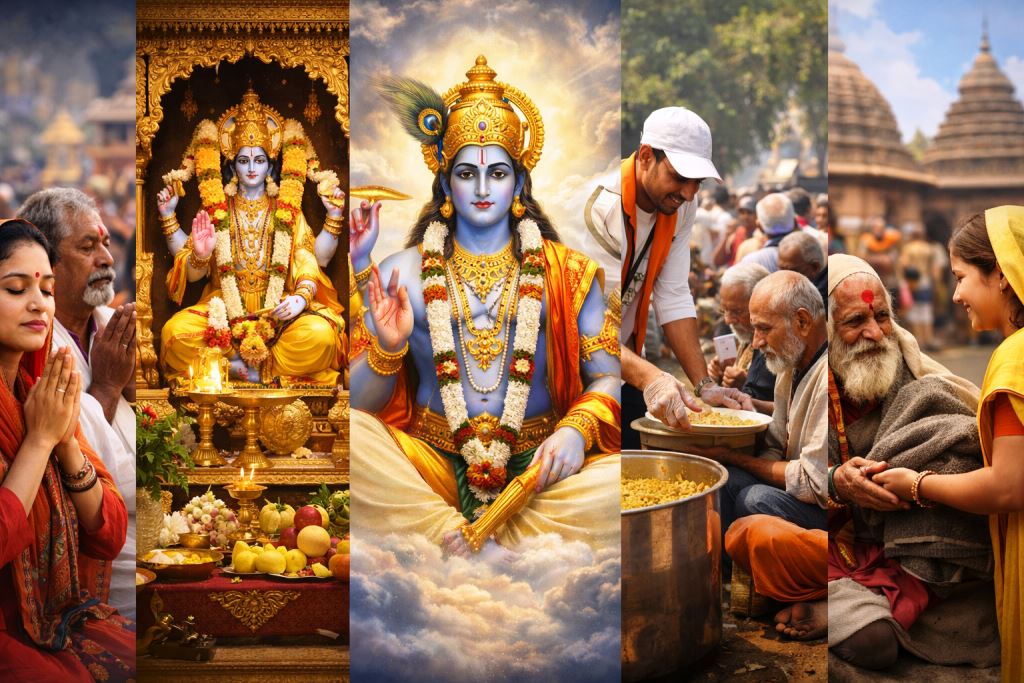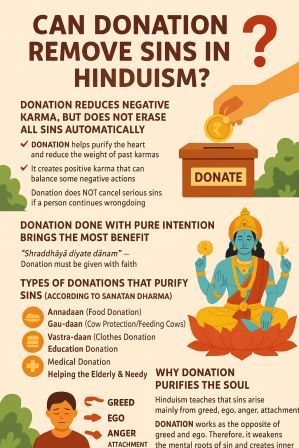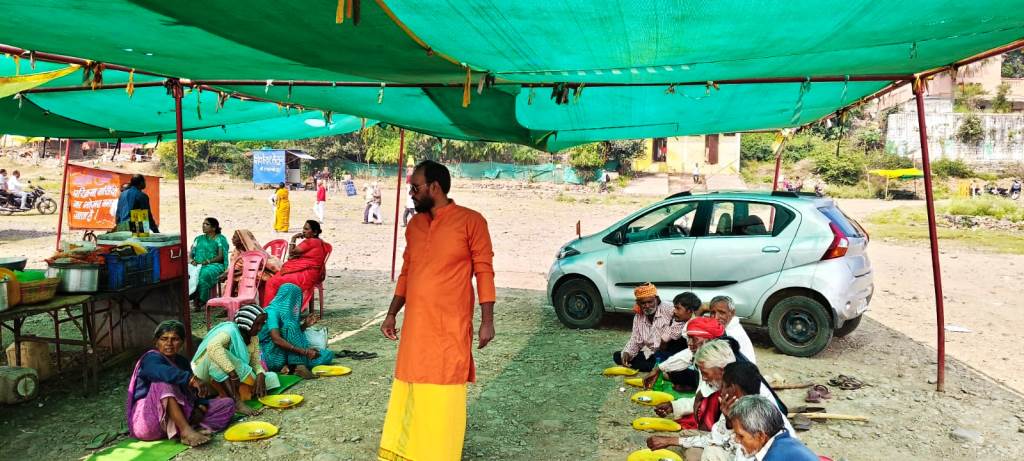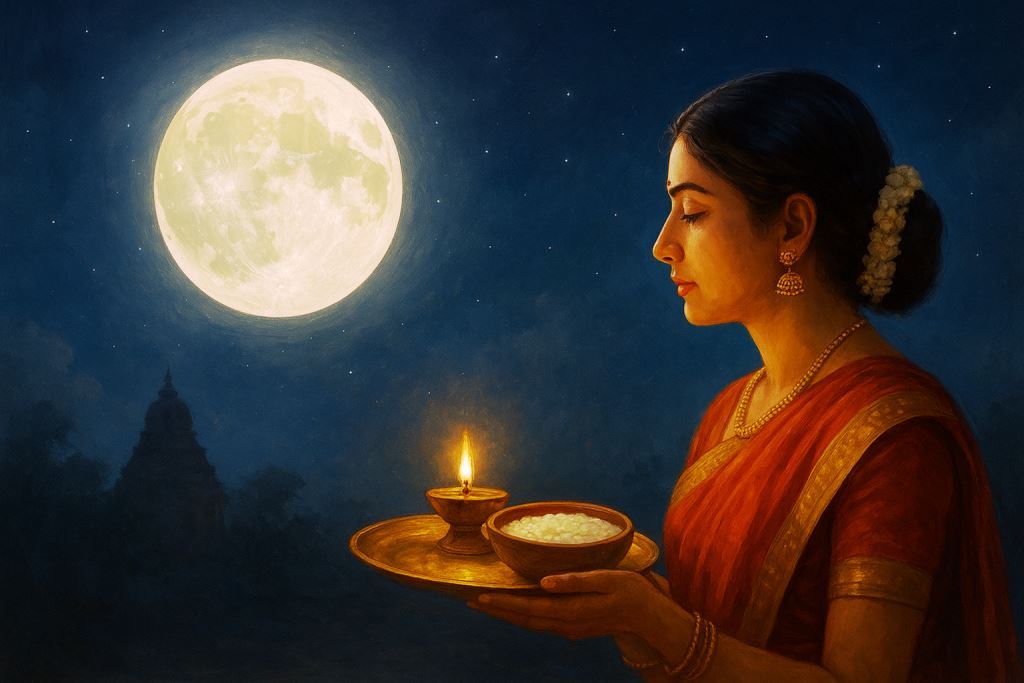Jaya Ekadashi 2026: Significance, Vrat Vidhi, Benefits & Donation
Introduction: Why Jaya Ekadashi Is Spiritually Powerful
Jaya Ekadashi is one of the most auspicious Ekadashis observed in the Hindu calendar. It falls in the Shukla Paksha of Magh month and is dedicated to Lord Vishnu. On this sacred day, devotees observe a strict fast, chant Vishnu mantras, and perform charity.
Moreover, scriptures clearly state that donation (daan) on Jaya Ekadashi multiplies punya and helps in removal of past sins. Therefore, this Ekadashi is considered ideal for both spiritual upliftment and selfless service.
When Is Jaya Ekadashi 2026?
Jaya Ekadashi is observed during Magh Shukla Paksha. Devotees should follow Vaishnav Ekadashi timing based on sunrise and local Panchang.
👉 Tip: Always break the fast on Dwadashi after sunrise at the correct Parana time.
Spiritual Significance of Jaya Ekadashi
According to Padma Purana, Jaya Ekadashi has the power to:
-
Destroy sins accumulated over many births
-
Remove negative karmic influences
-
Free souls from lower realms (yoni)
-
Grant devotion, peace, and Vishnu Kripa
Additionally, observing this vrat with devotion is said to be equivalent to performing Ashwamedha Yagna.
Jaya Ekadashi Vrat Vidhi (Step-by-Step)
1. Preparation (Dashami Day)
-
Eat satvik food only
-
Avoid onion, garlic, and tamasic items
-
Maintain purity in thoughts and actions
2. Ekadashi Day Rituals
-
Wake up early during Brahma Muhurat
-
Take bath and wear clean clothes
-
Install Lord Vishnu idol or picture
-
Offer Tulsi leaves, fruits, flowers, and incense
-
Chant:
“Om Namo Bhagavate Vasudevaya” (108 times)
3. Fasting Rules
-
Nirjala (without water) or
-
Phalahar (fruits & milk)
However, elderly and sick devotees may follow partial fast.
4. Dwadashi Parana
-
Break fast at the prescribed Parana time
-
Offer food to Brahmins or needy people first
Importance of Donation on Jaya Ekadashi
Donation on Ekadashi is not ordinary charity. Instead, it becomes Divine Seva when done with faith. Scriptures mention that Vishnu is extremely pleased when devotees help the poor on this day.
Best Items to Donate on Jaya Ekadashi
-
Food grains
-
Clothes
-
Ghee, oil, or lamps
-
Support for Annadanam
-
Temple seva or puja sponsorship
As a result, the donor receives health, prosperity, and spiritual protection.
How Donation Helps You Spiritually
Because Jaya Ekadashi removes negative karmas, donation acts as a karmic purifier.
Additionally:
-
It strengthens Vishnu Bhakti
-
It brings peace to ancestors
-
It creates positive energy in family
-
It opens doors for divine grace
Donation Appeal – Serve Dharma with Us
On this sacred occasion of Jaya Ekadashi, Guruweshvar Shani Foundation invites all devotees to participate in Dharma Seva.
Your donation will be used for:
-
Annadanam (free food service)
-
Temple rituals and oil lamp seva
-
Helping poor families and sadhus
-
Religious activities and spiritual awareness
Even a small contribution made with devotion becomes Akshaya Punya.
👉 Donate on Jaya Ekadashi and receive divine blessings of Lord Vishnu & Shani Dev
Why Donate Through Guruweshvar Shani Foundation?
-
Transparent and dharmic utilization
-
Dedicated to Sanatan Dharma values
-
Focused on spiritual and social upliftment
-
Trusted by devotees across India
Therefore, your support directly transforms lives while strengthening Dharma.
Jaya Ekadashi Mantra
“Om Namo Narayanaya”
Chant this mantra throughout the day for peace and protection.
FAQs – Jaya Ekadashi
Is Jaya Ekadashi good for donation?
Yes. Donation on Jaya Ekadashi gives multiple times more punya than normal days.
Can we donate money instead of food?
Yes. Monetary donation used for Annadanam or Seva is equally meritorious.
Who should observe Jaya Ekadashi vrat?
Anyone seeking peace, forgiveness of sins, and Vishnu’s blessings can observe it.
Can women and elders keep this vrat?
Yes. They may follow fruit or water-based fasting as per health.
Conclusion: Turn Devotion into Divine Action
Jaya Ekadashi is not just about fasting. Instead, it is about purifying the soul through devotion, discipline, and donation.
When you donate on this holy day, you are not just helping someone in need—you are offering your karma at the feet of Lord Vishnu.
✨ Observe Jaya Ekadashi. Donate with faith. Receive eternal blessings. ✨
Jaya Ekadashi 2026: Significance, Vrat Vidhi, Benefits & Donation Read More »

















